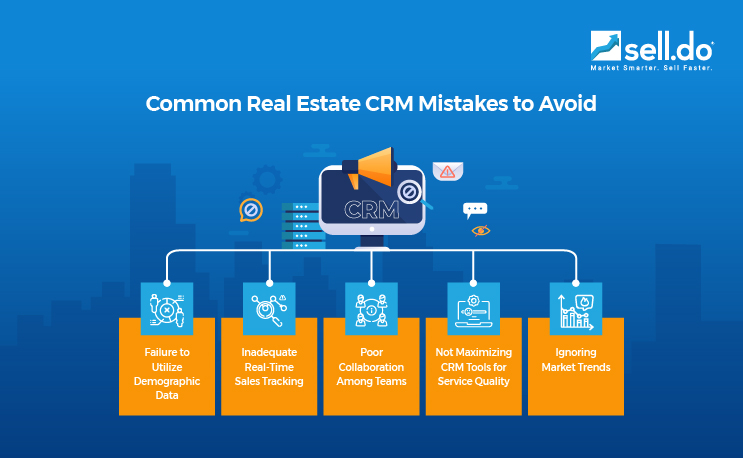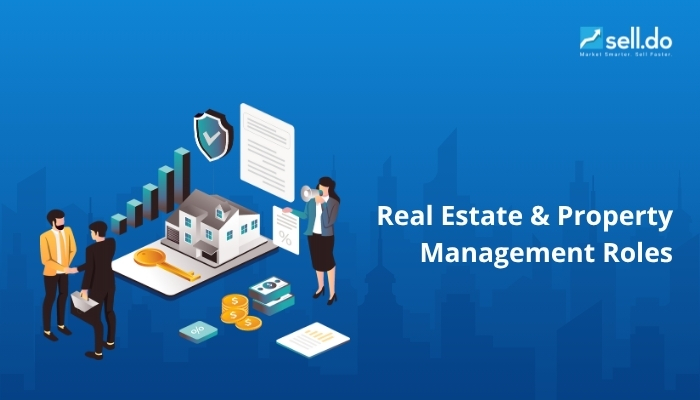Customer Relationship Management (CRM) systems are not just tools; they are the backbone of real estate sales and client relationships. However, many real estate professionals face challenges that hinder the effectiveness of these systems. This blog delves into the common mistakes associated with CRM systems, providing insights on how to overcome them. By doing so, your CRM can transform from a liability to a robust asset, enhancing your sales and client management capabilities.
Understanding CRM in Real Estate
At its core, a CRM system is designed to manage communications with current and potential clients, streamline operations, and enhance the profitability of a business. In real estate, CRM systems play a crucial role in organizing client data, tracking property sales, and maintaining follow-ups. Key features include:
-
Client Interaction Management:
This feature keeps a detailed log of all communications with clients, whether they are emails, phone calls, or in-person meetings. By having a comprehensive history of interactions, real estate agents can tailor their outreach efforts based on individual client preferences and past behaviours. This personalized approach not only makes clients feel valued but also increases their likelihood of successful transactions by addressing specific client needs and concerns.
-
Sales Tracking:
Sales tracking in a Real Estate CRM, system monitors various stages of the sales process, from the initial contact with a potential buyer to the final closing of a property deal. It allows agents to see where each client is in the sales funnel, identify any jams, and take appropriate steps to nudge deals forward. By facilitating a clear overview of the sales pipeline, CRM systems help agents prioritize tasks, manage time more effectively, and ensure no opportunity is overlooked, ultimately driving higher conversion rates.
-
After-Sales-Service:
A CRM's role does not end with the sale of a property. After-sales service features ensure that customers continue to receive support and information even after the transaction is complete. This includes follow-up communications, addressing any post-purchase issues, and providing updates on property management or maintenance services.
Common Real Estate CRM Mistakes to Avoid

-
Failure to Utilize Demographic Data:
Many real estate agents collect extensive demographic data but fail to leverage this information to segment their audience and personalize marketing efforts. For instance, understanding the age, financial bracket, and preferences of leads can help tailor property suggestions that are more likely to convert into sales. According to Statista, CRM data show a 14% higher click-through rate for personalized email campaigns than non-personalized campaigns.
-
Inadequate Real-Time Sales Tracking:
A common CRM mistake is not utilizing it to track sales in real-time. Real estate markets move quickly, and agents need immediate updates on client status and inventory changes. Real-time tracking helps adjust strategies promptly to secure deals. Forrester shows that 75% of organizations using CRM software saw an improvement in customer satisfaction metrics.
-
Poor Collaboration Among Teams:
CRMs are often underutilized as collaborative tools within real estate agencies. When agents, support staff, and management need to synchronize their efforts through the CRM, discrepancies in client handling and inefficiencies in process management arise, leading to missed opportunities.
-
Not Maximizing CRM Tools for Service Quality
C CRMs are equipped with tools to enhance customer service — yet many companies do not use these features to the fullest. Automated reminders, personalized messaging, and satisfaction surveys can significantly improve the client experience and foster positive reviews and referrals. Salesforce shares that businesses leveraging CRM software see sales increase by 29%, sales productivity increase by 34%, and sales forecast accuracy increase by 42%.
-
Ignoring Market Trends:
Ignoring market analytics and trend data from CRM tools can lead to outdated strategies that do not resonate with the current market climate. Effective CRM use involves analyzing market trends and adapting sales tactics accordingly.
Strategies to Optimize CRM Usage
Maximizing the benefits of a CRM system in real estate sales goes beyond mere data entry; it involves strategic and thoughtful utilization of the tool. To ensure your CRM usage is fully optimized, consider implementing the following strategies:
-
Integrate CRM with Other Tools:
The integration of your CRM system with other digital tools, such as marketing automation platforms and analytics software, is crucial for creating a seamless and efficient workflow. This synergy allows for the aggregation of data across platforms, enhancing usability and providing a holistic view of customer interactions and marketing effectiveness.
-
Regular Training:
CRM systems are continually evolving, with new features and updates that can significantly improve functionality and user experience. Regular training sessions are essential to keep everyone abreast of these updates and ensure they are competent in utilizing all features of the CRM. This ongoing education helps prevent the underutilization of powerful CRM functions. It ensures that your team is leveraging the tool to its full potential, thereby maximizing productivity and enhancing client relations.
-
Use Data for Strategic Planning:
CRM systems generate a wealth of data that can provide deep insights into client behavior, preferences, and market trends. Regular analysis of this data is vital for strategic planning and decision-making. By understanding patterns in client interactions and market dynamics, real estate businesses can tailor their marketing and sales strategies to meet client needs better and anticipate market shifts. This proactive use of data helps optimize resource allocation, target efforts more effectively, and ultimately drive better business outcomes.
Legal and Ethical Considerations
In today's digital age, the ethical handling of client data is not just a best practice but a legal imperative. Real estate businesses must meticulously manage customer information to comply with data protection regulations such as the Data Protection and Digital Information Act (DPDIA). This act involves ensuring that all CRM activities are conducted within legal frameworks to safeguard client privacy and confidentiality. Adhering to these standards is crucial for building and maintaining trust with clients.
Trust is a foundational element in real estate transactions, where clients entrust sensitive information to their agents. By using CRM data ethically and responsibly, real estate professionals demonstrate their commitment to client security, which can significantly enhance their reputation and client relationships. Therefore, it's vital for real estate businesses to regularly audit their CRM practices and keep their teams trained on the latest data protection laws to ensure all client interactions are handled with the utmost integrity and care.
Conclusion
Avoiding these common pitfalls in CRM usage for real estate professionals aims to enhance their sales effectiveness and client relationships. By embracing strategic practices and continuous learning, real estate businesses can turn their CRM systems into invaluable assets that drive growth and client satisfaction.
Consider Sell.Do CRM, a specialized tool designed to address specific needs of the real estate sector. It offers tailored features that enhance client management, sales tracking, and market analysis, making Sell.Do an excellent choice for real estate professionals looking to avoid common real estate agent mistakes and maximize their growth potential.







Leave a comment
Comments (0)
Be the first one to comment.